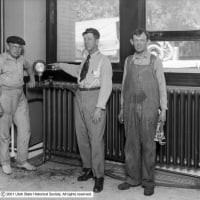Welcome! Here are the website rules, as well as some tips for using this forum.
Need to contact us? Visit https://heatinghelp.com/contact-us/.
Click here to Find a Contractor in your area.
If our community has helped you, please consider making a contribution to support this website. Thanks!
glycol questions...
Options

hot_rod
Member Posts: 26,638
is the only waty to tell PG from EG. Several glycol manufacturers have confirmed that.
Also you can mix PG and EG, but you end up with a solution of unknown toxicity. EG is a better transfer fluid, and also breaks down in the enviroment quicker than PG (1 less carbon) But the higher toxicity make it too risky for most residential applications.
EG was used as de-icers, may still be, in many areas as it would break down faster in the bio ponds before going down the drain, from the research I have done. I see most airports now label the spray trucks PG, I've been keeping track with all my flying time and boredum associated with waiting on runways :)
Interestingly glycol recyclers mix PG and EG all the time. Many of the automobiles now use PG glycols. When that fluid is drained to recycle at Lube joints, dealers, repair shops, etc it all goes into the same drum. Rarely does a mechanic know what fluid he is draining.
As you know the fluid has 3 different protection numbers. If absolute burst temperature is what you are looking to protect for, use the last number. If slush, but no pump-abilty is enough, use the middle number.
Those protection numbers vary from brand to brand, but also from version to version. As you can see from this attachment HD or heavy duty glycols have different numbers.
hr
Also you can mix PG and EG, but you end up with a solution of unknown toxicity. EG is a better transfer fluid, and also breaks down in the enviroment quicker than PG (1 less carbon) But the higher toxicity make it too risky for most residential applications.
EG was used as de-icers, may still be, in many areas as it would break down faster in the bio ponds before going down the drain, from the research I have done. I see most airports now label the spray trucks PG, I've been keeping track with all my flying time and boredum associated with waiting on runways :)
Interestingly glycol recyclers mix PG and EG all the time. Many of the automobiles now use PG glycols. When that fluid is drained to recycle at Lube joints, dealers, repair shops, etc it all goes into the same drum. Rarely does a mechanic know what fluid he is draining.
As you know the fluid has 3 different protection numbers. If absolute burst temperature is what you are looking to protect for, use the last number. If slush, but no pump-abilty is enough, use the middle number.
Those protection numbers vary from brand to brand, but also from version to version. As you can see from this attachment HD or heavy duty glycols have different numbers.
hr
Bob "hot rod" Rohr
trainer for Caleffi NA
Living the hydronic dream
trainer for Caleffi NA
Living the hydronic dream
0
Comments
-
How does one tell the difference between ethly and prop glycol? I am servicing a system with red glycol. Second question is do you add glycol until it will protect against the design temp in my area? (3* design temp here) Glycol tests to +5* ethyl type and +12* prop type with a refractometer, now I need to know what I am using!
Thanks, TimJust a guy running some pipes.0 -
One is food safe the other is very toxic
I use paper test strips for PH and protection values. I have never tried a tester from auto zone on my systems.
Color is just that, "don't drink this", I am stumped. Which is why I come here. I get to see questions and answers about stuff I do not know.
I know someone here is a chemist.0 -
Pink glycol was very sweet when I mixed it with my soda...kidding. This stuff irritated my hands so I am sure it is ethylene. Not sure what freeze point to take it down to...
TimJust a guy running some pipes.0 -
Propylene glycol is available in USP grade (United States Pharmacopoeia 96.9% )or non-USP. We normally use USP in fire sprinkler systems. Teh price difference is less than $1.00 per gallon.
I asked the same question as you did, and I did not get an answer. I called UniVar, & did not get a question.0 -
Glycol
Timco
Spectral analysis is what we have used in the past. Testing is pricey.
Drew
Noble Company0
This discussion has been closed.
Categories
- All Categories
- 87.4K THE MAIN WALL
- 3.2K A-C, Heat Pumps & Refrigeration
- 61 Biomass
- 429 Carbon Monoxide Awareness
- 120 Chimneys & Flues
- 2.1K Domestic Hot Water
- 5.8K Gas Heating
- 115 Geothermal
- 167 Indoor-Air Quality
- 3.7K Oil Heating
- 77 Pipe Deterioration
- 1K Plumbing
- 6.5K Radiant Heating
- 395 Solar
- 15.7K Strictly Steam
- 3.4K Thermostats and Controls
- 56 Water Quality
- 51 Industry Classes
- 50 Job Opportunities
- 18 Recall Announcements
